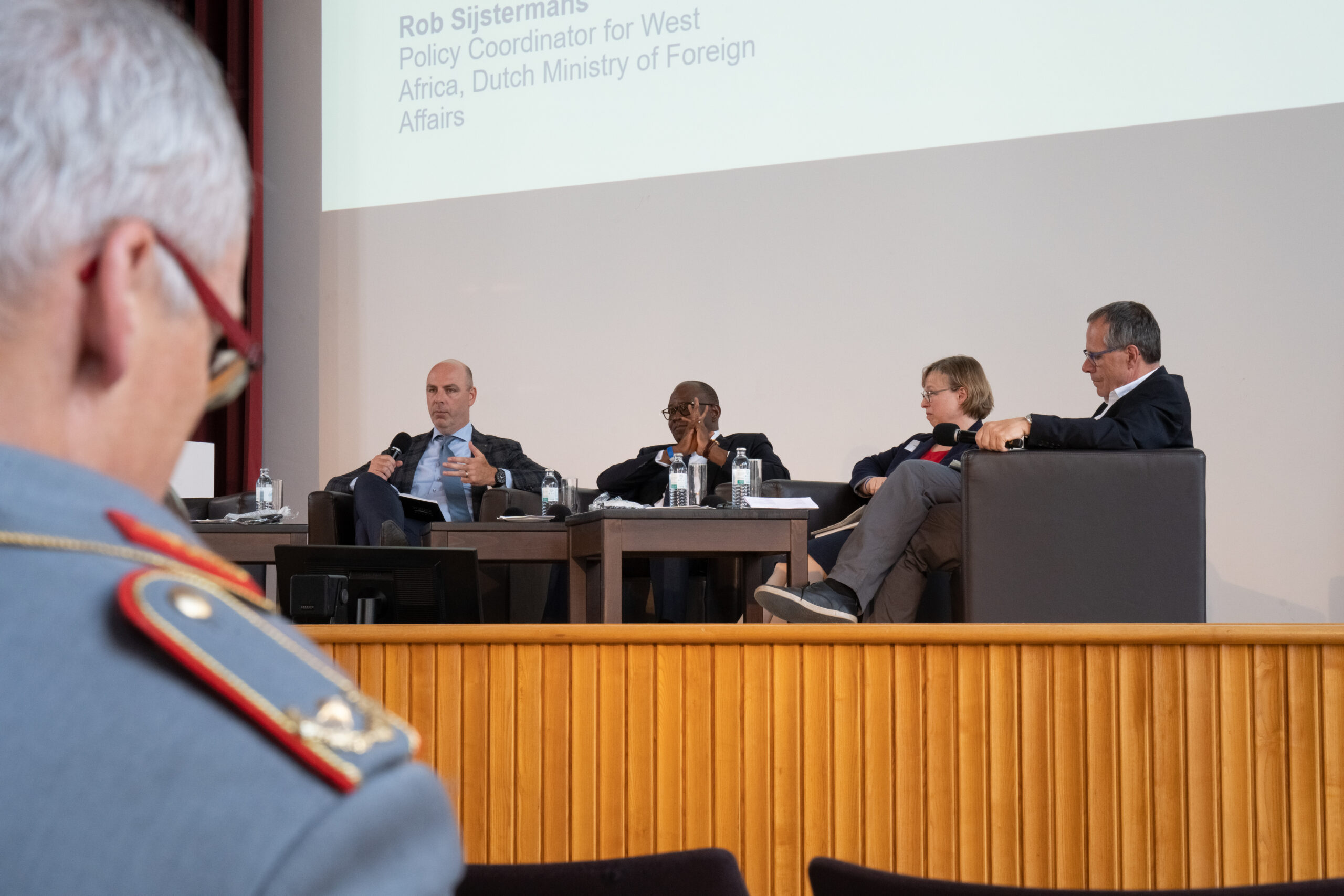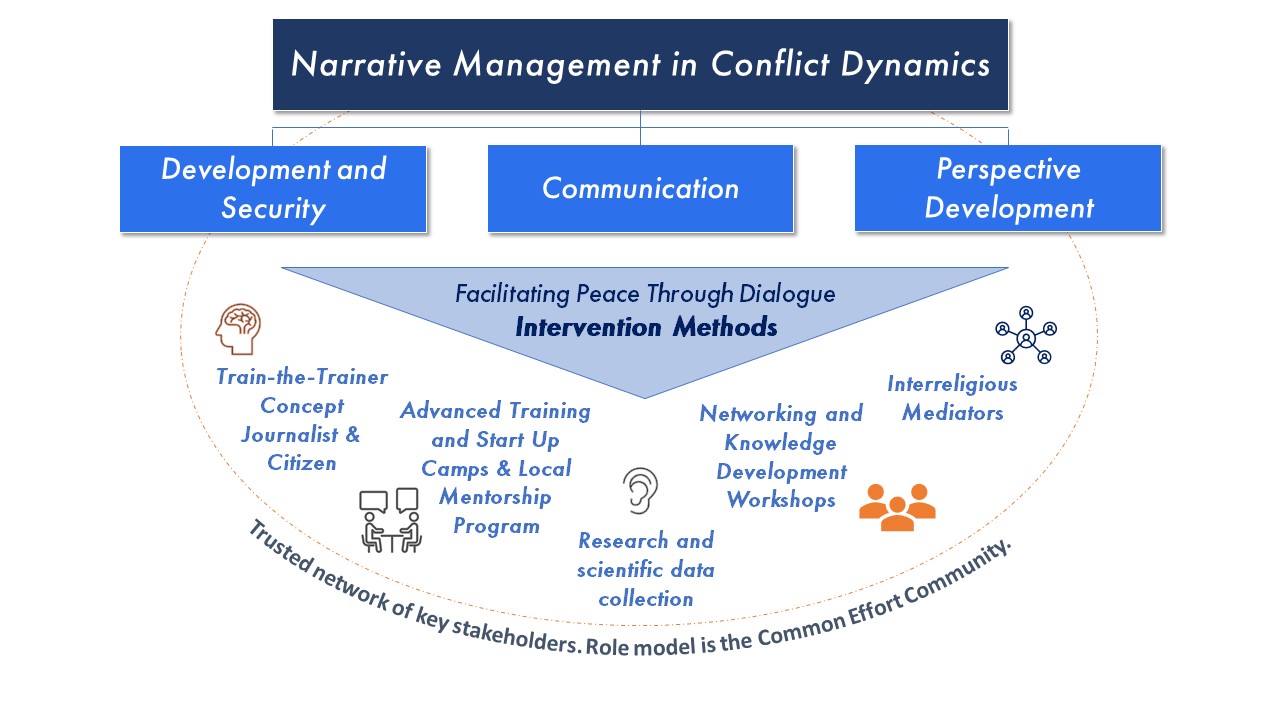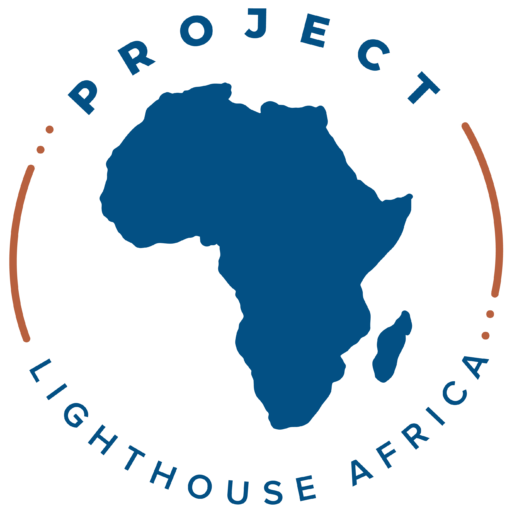High connectivity for NAMA4PD

High connectivity
The concept is well scalable to German Development Cooperation’s reform partner countries in Africa and to African countries threatened by destabilisation through disinformation and the hybrid context. In addition, NAMA4PD offers high connectivity in the global context.
VEOs exploit countries’ vulnerability to climate change, stalled socio-economic development, high youth unemployment and inefficient governance structures. One of their core strategies is to destabilise countries by spreading narratives based on fake news, disinformation and hate speech. This undermines general and institutional trust in countries and local communities and destroys social cohesion.
It is particularly difficult for international policy actors to respond in an effective and coherent manner (Common Effort Workshop 2021 to Sahel G5 Report) due to a severe lack of knowledge about communication networks, information flows and disinformation management capabilities, as well as a lack of appropriate means of effectively counter Islamist propaganda narratives.
Narrative Management for Peace through Dialogue (NAMA4PD) is a concept that brings together key points from various current guidelines (including Preventing Crises, Managing Conflicts, Promoting Peace) and expert recommendations (including the report of the German government’s Commission on the Causes of Flight).
The concept allows for the practical implementation of elements of an networked approach (integrated approach) based on three interdependent pillars: security and development, communication, and perspective development. Our particular focus is on inclusion. In addition to working with young people, we focus on working with and for women to promote gender equality.
Empirical Data Collection and International Cooperation
NAMA4PD (Narrative Management for Peace through Dialogue) leverages its international connectivity by integrating local expertise with global best practices. Its innovative strength lies in combining existing approaches: building and sustaining a trusted network of key stakeholders across multiple sectors, establishing a system for trusted information collection and distribution with local ownership, and working closely with international partners to strengthen resilience against destabilization efforts.
To ensure effective implementation, the initiative begins with thorough empirical data collection and analysis. This process is designed to better understand local communication networks, influencer structures, and the flow of information, providing critical insights for tailoring the project to the regional context.
Collaboration between European and local experts will form the backbone of NAMA4PD. The initiative includes capacity-building measures such as training workshops, a train-the-trainer program, and community education efforts. Local ownership is emphasized through the development of a robust information system managed by local stakeholders. This international-local partnership enhances community resilience against fake news, hate speech, and propaganda, while synchronizing efforts among peacebuilding and development actors across borders.

Communication as a Central Pillar
One of the key findings from exploratory work in West African countries is that communication forms a central pillar of the NAMA4PD concept. A deep understanding of local communication structures and the flow of information is critical to fostering dialogue and stability, particularly in regions where state institutions are weak or fragmented.
In recent years, West Africa has experienced multiple destabilizing events, including military coups, the rise of anti-European sentiment, and the spread of jihadist propaganda. These issues dominate media narratives and reflect a broader trend of increasing instability. By focusing on communication, NAMA4PD seeks to counter these destabilizing forces by promoting dialogue, information literacy, and networked approaches to peacebuilding.
The international connectivity of NAMA4PD is vital to ensuring that these challenges are addressed through a coordinated, multi-stakeholder approach that combines the strengths of local insights and international expertise.
 Project Lighthouse Africa e.V.
Project Lighthouse Africa e.V.